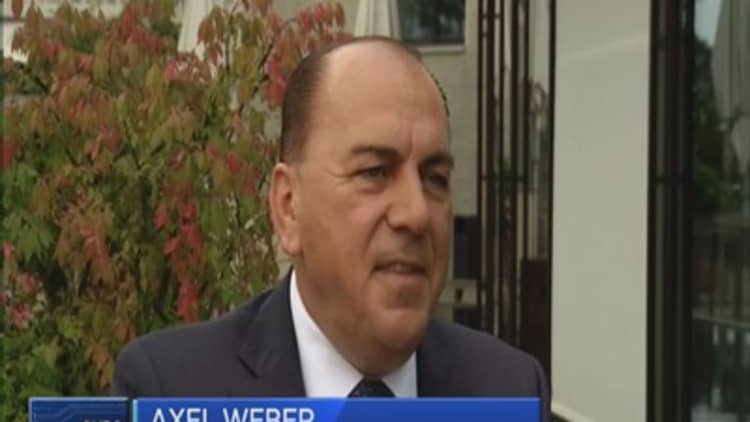
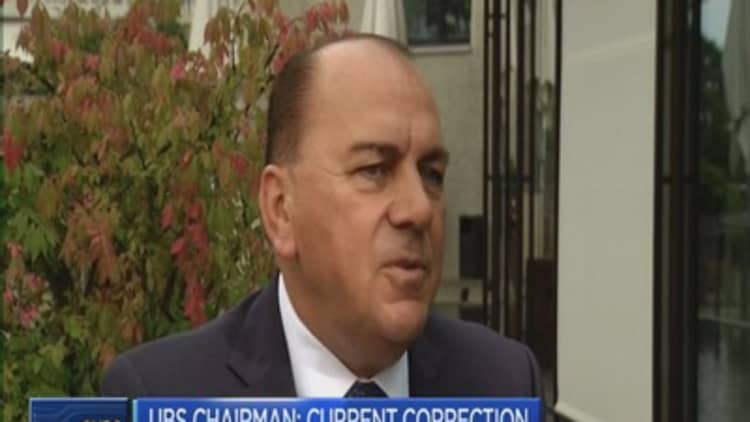
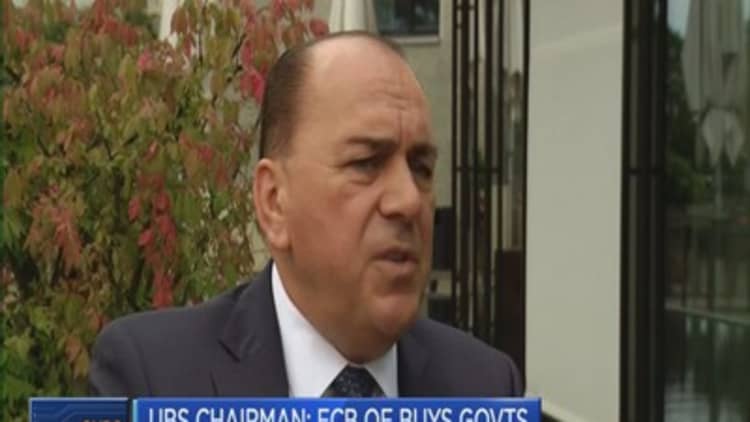
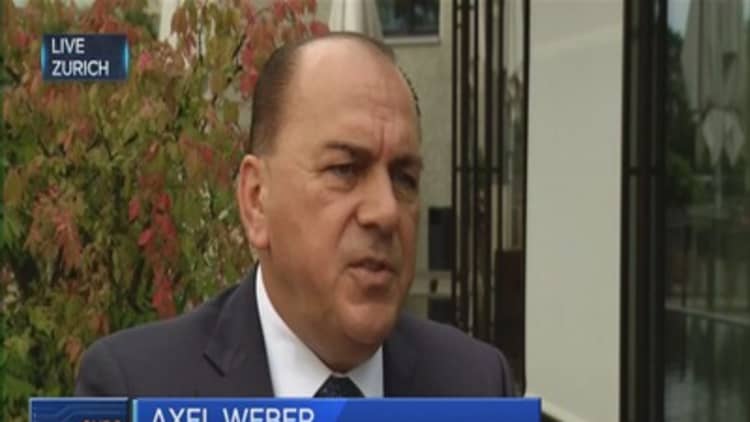
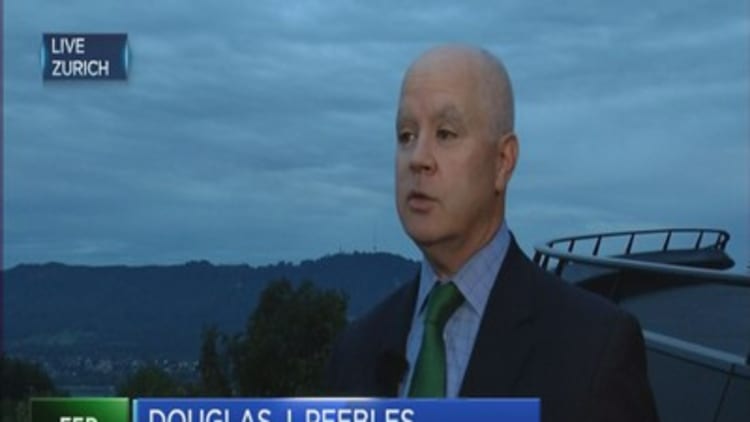
This week it's all about the U.S. Federal Reserve. Markets are poised, financial leaders are tuned in and everyone is wondering… will the Fed raise rates on Thursday?
While central bankers won't typically give much away, one former policymaker-turned-bank chairman told CNBC that the U.S's recent positive economic data showed a rate hike was due.
"The underlying economic data in the U.S. warrants a rate hike. The U.S economy can stand it. The U.S. economy in my view actually needs it medium- to long-term and I'm pretty convinced that the U.S. will see a rate hike, most likely in September," Axel Weber, now chairman of UBS and formerly president of Germany's central bank, told CNBC on Tuesday.
Weber's opinion on when the Fed will raise rates is of high interest to financial markets, given his role as the head of the Bundesbank between 2004 and 2011 and his commensurate membership of the European Central Bank's Governing Council.
If the Fed hikes in September as Weber suggests, this would be the first increase after nine years off rock-bottom rates.
Policymakers at the U.S. central bank will meet on Wednesday, with their decision to be announced on Thursday.
Fed Chair Janet Yellen has previously said that a rate rise is "data-dependent"—and Weber highlighted that the estimate for U.S. economic growth in the first quarter has been upgraded to an annualized 0.6 percent. In addition, second quarter growth came in at a "very good" 3.7 percent annualized.
Nonetheless, Weber told CNBC that it would be acceptable for the Fed to hold off raising rates until later in the Fall, as long as it communicated its strategy efficiently throughout.
"They need a longer-term anchored communication process to make clear that the current turnaround in policy will be followed by a moderate and more adequate raising of rates. I think getting the medium-term communication right for the Fed, is much more a challenge than getting the first move right," he said.
With timing a hot topic for investors, some are concerned the Fed might rerun its 1994 strategy, carrying out rate hikes month after month following its first raise. Weber's opinion? No chance.
"The Fed already made clear that they will basically raise rates in a more balanced and stretched out way. They'll do a moderate tightening of rates," he said.
"I think the Fed in the current cycle to the end of the conjuncture cycle will probably not get above a 3, at most 4, percent rate. They will not go to the levels of rates in the past."
Weber said that this would cause problems if the U.S. economy cooled again, as the central bank might lack room for maneuver.
"I think the Fed will move at best at every second policy meeting, which basically means they can move by 100 basis points over a year, which is much lower than what we've seen in the past," he told CNBC.
He added that other central banks might follow the Fed's lead in raising rates—the Bank of England has been touted as a second mover—but would wait a while before doing so.
On the flip side, Weber said that moves from elsewhere would not stop the Fed from acting, but might impact the speed and magnitude of U.S. interest rate hikes.
A decline in the euro and the following a Fed hike could see "renewed pressure" on the U.S. dollar, he added.
"The Fed should start raising rates sometime soon. It should do that at a moderate, protracted pace. In that sense, the market can then re-price it rightly and by and large I think that's where the market is today," Weber concluded.
—By CNBC's Alexandra Gibbs, follow her on Twitter @AlexGibbsy.


